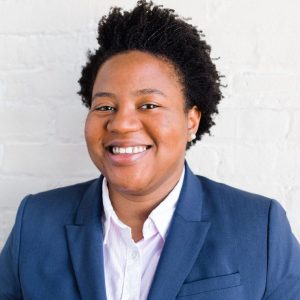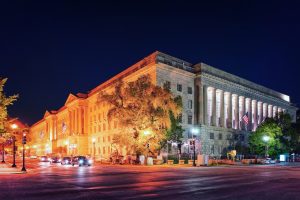CURRENT MONTH (May 2025)
Business Crimes & Corporate Compliance
How to Have “The Talk” About FinCEN Identifier Numbers
By William E. H. Quick, Polsinelli PC
Visit Business Law Today’s May 2025 in Brief: Corporations, LLCs & Partnerships to read the full update on the Corporate Transparency Act.
Banking Law
Montana Amends Consumer Data Privacy Act, Removes Financial Institution Exemption
By Paul J. Lysobey and David Tallman, McGlinchey Stafford PLLC
On May 8, 2025, the governor of Montana signed into law SB 297, which amends the Montana Consumer Data Privacy Act (“MCDPA”). The amendments become effective on October 1, 2025.
Among other things, SB 297:
- amends the scope and applicability of the MCDPA,
- substantially narrows a heavily relied upon financial institution exemption,
- revises the enforcement process, and
- adds responsibilities for data controllers.
Covered financial institutions that maintain personal data regarding Montana residents should evaluate their compliance with the MDCPA in advance of the effective date.
SB 297 revises the MCDPA to lower the data processing threshold for Montana consumers that triggers the applicability of the law. Under the SB 297 amendments, the MCDPA now applies to any person conducting business in Montana or producing products or services targeted to Montana residents who: (1) controls or processes the personal data of at least 25,000 consumers (previously 50,000); or (2) controls or processes the personal data of at least 15,000 consumers (previously 25,000) and derives more than 25 percent of gross revenue from the sale of personal data.
Perhaps most notably, SB 297 removes the broad entity-level exemption from the MCDPA for financial institutions or affiliates of financial institutions governed by the Gramm-Leach-Bliley Act (“GLBA”) and replaces it with a narrower exemption that only is available to depository institutions and their affiliates. While the law still has a data-level exemption for “personal data collected, processed, sold, or disclosed in accordance with” the GLBA, the data-level exemption requires financial institutions within the scope of the MDCPA to categorize their consumer data to determine which data may be exempt.
By removing the entity-level GLBA financial institution exemption, Montana joins the minority group of other states (California, Minnesota, Oregon) that do not have the typical entity-level GLBA financial institution exemption from their state data privacy law. As a result, nondepository GLBA financial institutions now subject to the MDCPA should evaluate whether they meet the MDCPA coverage thresholds and whether they maintain covered data. If they do, they are now required to provide consumers with the various rights the MCDPA mandates (e.g., rights to access data, correct inaccuracies, delete personal data, obtain a copy of data, opt out of certain processing), and to comply with the numerous duties imposed on controllers of personal data.
Note that while the recent MCDPA amendment removed the exemption for GLBA financial institutions, it also added an entity-level exemption for state or federally chartered banks or credit unions and their affiliates and subsidiaries. As a result, it appears that the intent of the amendment was only to bring non-depository GLBA financial institutions (e.g., online lenders, auto-finance companies) under the scope of the MCDPA.
SB 297 includes a range of other changes. Among other things, it provides additional content that controllers must include in the MCDPA-required online consumer privacy notice. SB 297 also revises the opt-out requirement if the controller sells personal data to third parties or processed data for targeted advertising. Controllers must now provide a conspicuous opt-out method in the privacy notice and another opt-out method outside of the privacy notice. In addition, under prior law, the MCDPA required the Montana attorney general to issue a notice of a violation allowing sixty days for violations to be cured before initiating an enforcement action. SB 297 removes the notice and cure period and simply provides that the attorney general may issue a civil investigative demand if there is reasonable cause to believe that a person has violated the MCDPA.
Environmental Law
Sixth Circuit Clarifies CERCLA Statute of Limitations
By Michael R. Blumenthal, McGlinchey Stafford PLLC
On May 12, 2025, the U.S. Court of Appeals for the Sixth Circuit issued a pivotal decision addressing the timing of contribution claims under the Comprehensive Environmental Response, Compensation, and Liability Act (“CERCLA”), also known as Superfund.
The court held that a declaratory judgment establishing liability for response costs triggers the three-year statute of limitations for contribution actions, even if the judgment does not allocate specific costs among potentially responsible parties (“PRPs”).
The case centers on the Kalamazoo River Superfund site in Michigan, contaminated with polychlorinated biphenyls (“PCBs”) from historical paper mill operations. In 2010, a large paper company filed a contribution action against other manufacturers, seeking recovery of over $100 million in past cleanup costs and a declaratory judgment for future costs estimated between $600 million and $850 million.
In 2018, the district court allocated past costs among the parties and issued a declaratory judgment on future liability. However, in 2022, the Sixth Circuit reversed the allocation for two defendants/appellants, ruling that the plaintiff’s claims were time-barred under CERCLA’s three-year statute of limitations for contribution actions. The court emphasized that the limitations period commenced with the 1998 declaratory judgment establishing liability, not with the incurrence of specific costs or the entry of a cost allocation.
Key findings included the following:
- Triggering of statute of limitations: The Sixth Circuit clarified that a declaratory judgment establishing liability for response costs, even without cost allocation, initiates the three-year statute of limitations for contribution claims under CERCLA section 113(f)(1).
- Impact on nonparty defendants: The order affirmed that argument, specifically citing the appellate court’s 2014 ruling in Hobart Corp. v. Waste Management of Ohio, Inc., a prior court order that found that a party already subject to a judgment for cleanup costs—in this instance the initial judgment under CERCLA section 113—“cannot proceed with a § 107(a)(4)(B) cost-recovery action.” This means that PRPs must be vigilant in pursuing contribution claims promptly, even against parties not involved in earlier litigation.
- District court’s response: On remand, the district court maintained its prior declaratory judgment holding all four parties liable for future response costs, finding this consistent with the Sixth Circuit’s mandate and a practical approach to avoid relitigating liability determinations not addressed on appeal.
This decision underscores the importance of PRPs engaging counsel to consider the following courses of action:
- Acting promptly: Initiate contribution actions within three years of any judgment establishing liability for response costs, regardless of cost allocation status.
- Monitoring judgments: Recognize that even “bare bones” declaratory judgments can trigger the statute of limitations.
- Assessing potential liability: Evaluate the potential liability of other parties connected to a CERCLA site early in the process to avoid missing the window for contribution claims.
The Sixth Circuit’s ruling serves as a critical reminder for PRPs to be proactive in managing their CERCLA liabilities. By clarifying when the statute of limitations begins, the court has set a precedent that emphasizes the need for timely legal action in environmental cleanup cost recovery efforts.
Health & Life Sciences
Is the Pathway Opening for Religious Exemptions to the Controlled Substances Act under the Religious Freedom Restoration Act?
By Perry N Salzhauer, Salzhauer & Shortt, P.C.
More than three decades after the United States Religious Freedom Restoration Act (“RFRA”) created a pathway for religious exemptions to the strictures of the Federal Controlled Substances Act (“CSA”), the United States Drug Enforcement Agency (“DEA”) has granted its first approval of a petition for such an exemption. On May 16, 2025, it was reported that the Church of Gaia (“Gaia”), based in Spokane, Washington, had received approval from the DEA for its petition for an exemption from the CSA in connection with its use of ayahuasca as a religious sacrament. The CSA prohibits the import, distribution, storage, and use of most psychedelic substances, without regard to whether those substances are used in connection with religious practices. Previously, all formal exemptions from the CSA relating to the use of controlled substances in connection with religious practices had been obtained in a litigation context, either through court rulings or confidential settlement agreements.
Although the specific details of the exemption granted to the Gaia have not been finalized, the mere fact that a petition for exemption was granted is of historical and legal significance. Enacted in 1993, RFRA, 42 U.S.C. § 2000bb et seq., creates a basis for religious groups to challenge the application of laws of general applicability to their practice of religion by providing “a claim or defense to persons whose religious exercise is substantially burdened by government.” 42. U.S.C. § 2000bb(b)(2). To do so, a religious group must first assert that its exercise of religion has been substantially burdened. Once this has been asserted, the burden shifts to the government to demonstrate that the application of the burden to the religious group (i) furthers a compelling government interest and (ii) is the least restrictive means of furthering that compelling interest. 42 U.S.C. § 2000bb-1(b). In 2006, the United States Supreme Court’s decision in Gonzalez v. O Centro Espírita Beneficente União do Vegetal, 546 U.S. 418, held that the RFRA exemption standard applies to the CSA, and granted the first RFRA exemption to the general application of the CSA with respect to the use of hoasca (ayahuasca) in connection with a religious group’s practices. In 2009, three years after the O Centro decision, and largely in response to it, DEA released its initial guidance establishing the procedure, arguably required by RFRA since 1993, for religious groups to assert a burden on their exercise of religion through a petition process rather than asserting this as a defense in a judicial proceeding. In the intervening years, DEA has updated this guidance only once, in 2020.
Despite having received dozens of petitions for RFRA exemptions since the petition process was established, exactly zero had been granted prior to May 2025, and many if not most of the petitions were never acted upon in any way by DEA. In May 2024, a report by the United States Government Accountability Office (“GAO”) largely criticized DEA’s approach to RFRA exemption petitions, citing its lack of transparency, and urged DEA to further revise its guidance to include timelines and increase communication with applicants in connection with petitions. While DEA has yet to formally amend its existing guidance, its recent granting of the Gaia petition could be a sign that under this administration the agency will take a more proactive approach to the issue and begin to address the backlog of pending petitions.
Labor & Employment Law
Fifth Circuit: Employer’s Unreasonably Delayed Response Is Failure to Accommodate
By Melissa Losch, McGlinchey Stafford PLLC
In Alisha Strife v. Aldine Independent School District, the plaintiff, a U.S. Army veteran employed in the school district’s human resources department, requested an accommodation for various disabilities, including post-traumatic stress disorder (“PTSD”), to bring her service dog to work. She sued the district for over $1 million, alleging discrimination under the Texas Human Resources Code and that a six-month delay in granting such a request was unreasonable.
The plaintiff made the accommodation request pursuant to the Americans with Disabilities Act (“ADA”). The district requested additional information, and the employee provided a letter from her treating provider with the U.S. Department of Veterans Affairs (“VA”), who wrote that the dog was “invaluable to [the employee’s] mental and physical health recovery.” The district deemed this insufficient because the provider was not a board-certified medical doctor. In response, the employee provided a similar letter from her treating psychiatrist. The district then requested that the employee submit to an independent medical examination.
In response, the employee contacted an attorney, who requested information about any additional accommodations the district was contemplating. After the district scheduled a medical exam for the employee, her attorney provided three additional letters, including two from other physicians. The employee also filed an Equal Employment Opportunity Commission (“EEOC”) charge. Four days later, she underwent a VA-led exam that confirmed that a dog was required “in all settings (including place of employment) to avoid further balance-related injuries.”
The district found the supplemental medical documentation and VA’s evaluation to be inadequate, and the employee sued, asserting five claims under the ADA, the Rehabilitation Act of 1973, and Texas state law. The parties were directed by the court to engage in the interactive process, and the district granted her accommodation request, six months after her initial request.
The Fifth Circuit determined that the six-month delay was unreasonable and that the employee had pled sufficient facts that could allow a factfinder to conclude the district unjustifiably delayed her request, reversing the lower court’s dismissal of her federal and state-law failure-to-accommodate claims. The court, however, affirmed dismissal of her disability-related hostile work environment claim as well as summary judgment against her disability discrimination, retaliation, and interference claims.
The Fifth Circuit determined that an employer’s delay of the interactive process under certain conditions might create liability. The court pointed out that an employer could otherwise circumvent the ADA’s protections by forcing an employee to endure an endless interactive process. The court also noted, however, that an employer “is entitled to move at whatever pace he chooses so long as the ultimate problem—the employee’s performance of her duties—is not truly imminent.”
The court noted that the employee’s allegations also suggested a lack of good faith on the part of the employer to meaningfully evaluate her request in a timely manner. The court noted that the employee only requested she be allowed to bring her service dog to work, and did not request that it procure the dog or modify her workplace. The employee further alleged that the district was responsible for the six-month delay because it wanted her to undergo an independent medical exam despite having repeatedly provided information confirming her disabilities and the need for accommodation. From these allegations, said the court, a reasonable factfinder could find the district’s insistence that she undergo an independent medical exam unreasonable.
Observing that the employee also alleged the district failed to offer any reasonable accommodations, the court pointed out that the district granted her request only after she sued and shortly before a hearing on a request for an injunction. From this, said the court, a reasonable factfinder could disbelieve the district’s claim it needed to determine whether alternative accommodations were available. Accordingly, the court reversed the dismissal of this claim.
This case highlights the importance of engaging in the interactive process in good faith and without undue delay. The interactive process generally refers to a two-way communication and collaboration between the employee and the employer; prompt initiation; good faith effort; and ongoing communication to find a reasonable accommodation. Medical documentation may be requested when the disability and/or need for accommodation is not known or obvious; however, an employer should not request additional documentation when documentation provided is sufficient to substantiate the existing disability and need for accommodation. While the employer is not necessarily required to provide the accommodation requested, the interactive process to discuss alternatives and effectiveness in removing workplace barriers is required.
Sports Law & Gaming Law
Texas Bill Would Introduce Constitutional Amendment to Legalize Sports Betting
By Megan Carrasco, Snell & Wilmer LLP, and Ashley Fortner, South Texas College of Law Houston
Texas State Representative Sam Harless (R) has introduced House Joint Resolution 134 (HJR 134), a bill that proposes an amendment to the Texas Constitution that would give the Texas Legislature authority to offer certain types of sports betting. The bill simply states that Texas voters should decide about legalizing sports betting when they vote in the November election. The bill is unlikely to pass before the end of the current legislative session on June 2, but it highlights a continued dogged push for gambling expansion in Texas.
If the bill, and then the constitutional amendment, pass, the Texas Legislature could permit sports wagering on (1) professional sports teams in existence as of January 1, 2025; (2) professional golf tournaments part of national tours; (3) class 1 (horse) racetracks; and (4) designees of these three groups.
As currently proposed, HJR 134 fails to define: how sports betting would be implemented; whom the law would apply to; how revenue would be collected; and where betting revenue would be allocated. Presumably, the constitutional amendment is meant to only authorize the potential for sports betting and therefore leave the details to future legislatures.
Further, the proposed constitutional amendment only authorizes wagering on sports teams and sports organizations (a term used in the bill) that were formed before January 1, 2025, without providing a process for new sports teams to allow betting.
Although legalizing sports betting has bipartisan support in Texas, some conservative and religious groups strongly oppose gambling. Other states have faced similar opposition. In Louisiana a state representative recently proposed a bill banning all sports betting for morality reasons. A sports betting bill was previously introduced in Texas in 2023, and although it passed the Texas House, it was not referred to a Texas Senate committee.
HJR 134 deviates from the previous Texas bill because it excludes wagering on professional car racing, such as Formula 1 and NASCAR races, while the previous bill did not. It is not clear why professional car racing was excluded when Texas is home to Circuit of the Americas racetrack and hosts major professional motorsport races including the United States Grand Prix.
HJR 134, and sports betting in general, has a long legislative road ahead in Texas. Despite some bipartisan and public support for legalizing sports betting in the state, it faces significant opposition in the Texas Senate. If the bill passes the Texas House and Senate, Texas voters would need to approve the constitutional amendment in a statewide referendum on November 4, 2025.








